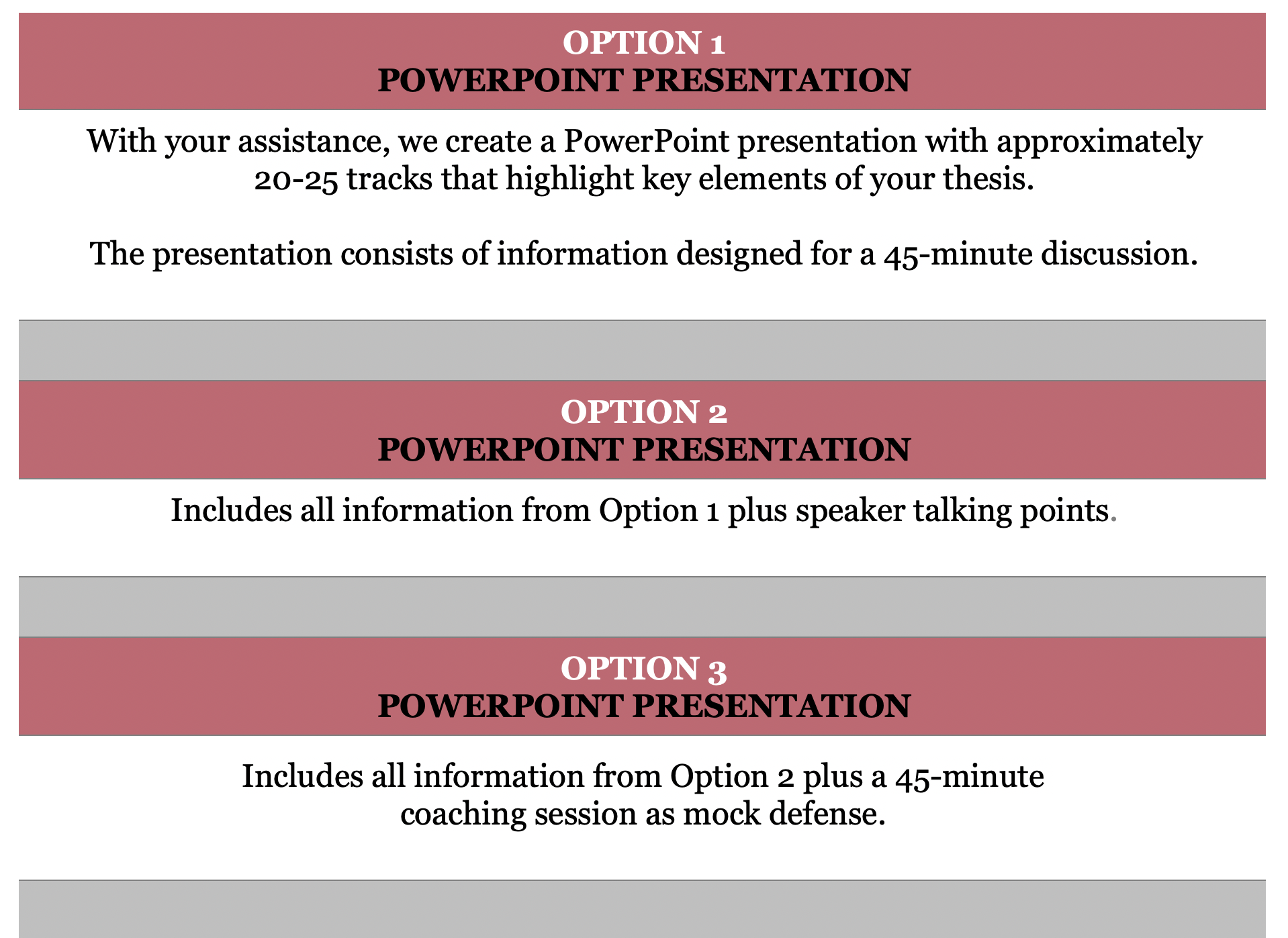Thesis Consulting

Dee’tail Consulting editors assist you in creating an outline for your full study. We help you develop context for the issue and elaborate on the problem you identified, define the specific purpose for your study, research questions you comprised to answer through the data collection process, and assist you with designing the overall study design.
Topic Development
Defining a topic and developing a thesis statement are the initial and most vital components in forming a well-developed solid paper. When selecting a thesis topic, the researcher should consider the purpose of the paper and possess knowledge about the topic to conduct necessary research. The researcher should select a topic of interest, which may make the research process enjoyable. Once the researcher selects the thesis topic, the next step is to develop a thesis statement.
Dee’tail Consulting editors review thesis statements to assess essential terms that will drive the paper. In many cases, the thesis statement is one sentence, but can be more than one depending on the student and university requirements.
Our editors conduct a review to ensure the thesis statement entails pertinent information to be used as the guide for the layout of the paper. The reader will know specifically what information the content will address from the thesis statement. The student’s thesis statement is the analysis of the topic.
Review of Literature
Drafting a thorough literature review is a time-consuming factor of thesis writing. The success of your thesis depends on how well you develop your literature review, as this section emphasizes the existence of present-day gaps in research your study will address. Additionally, the literature review will summarize the conceptual framework for your approach.
Research Design
The purpose for developing a research is to create a framework for outlining your research and answer your research questions.
Our editors review the data type you identified to conduct your research, study participants and sources, methods for your data collection process, and data analysis. We offer recommendations when needed.
Here at Dee’tail Consulting, our editors assist you in establishing boundaries for your project. The boundaries determine what will and will not be contained and the criteria by which you will examine your results and form your conclusions.
Methodology: Qualitative Methodology
The Methodology section will entail references to past researchers and research methods in an effort to confirm the credibility for your particular methodology.
Our editors review your detailed research design to confirm the description explains the reason why you feel your chosen approach is best suited to answer your specific research questions.
We ensure you incorporate pertinent information pertaining to your data collection instruments. Additionally, we work with you to provide an explanation and substantiate your sampling strategy for your study participants, proposed data collection methods, and qualitative analysis protocol.
Ensure accuracy of ethical considerations and possible limitations, such as researcher assumptions and the validity and reliability of your data.
Qualitative Analysis
The data analysis chapter includes, selection and statement of the study’s problem, literature review, research objectives, research methodology, and data analysis report.
Considering many thesis projects entail primary and secondary data analysis, our editors review your data analysis and results discussion to confirm research alignment.
Conclusion
At this stage in your writing, you completed your introduction and thesis body. The next step is equally important. The conclusion is the last section your reader will see; therefore, this section should provide a memorable overview. For many researchers, this step is simple, but not always easy to compose.
Our editors ensure you include necessary components that make up your conclusion. We review your full discussion and conclusion section based on the findings listed in your results section. When writing your conclusion, restating your thesis, reiterating key points of your work, explaining the relevance of your work by providing critical analysis of your findings, and how your findings converge with additional research in the field are critical components to accompany in this section.
Reference Review
Upon completing your thesis, Dee’tail Consulting editors help you administer a comprehensive editing process to include, APA or MLA formatting.
Our editors check for grammar, formatting, sentence structure, punctuation, spelling, and more.
Thesis Defense
Dee’tail Consulting offers three options to assist you with defending your thesis.


